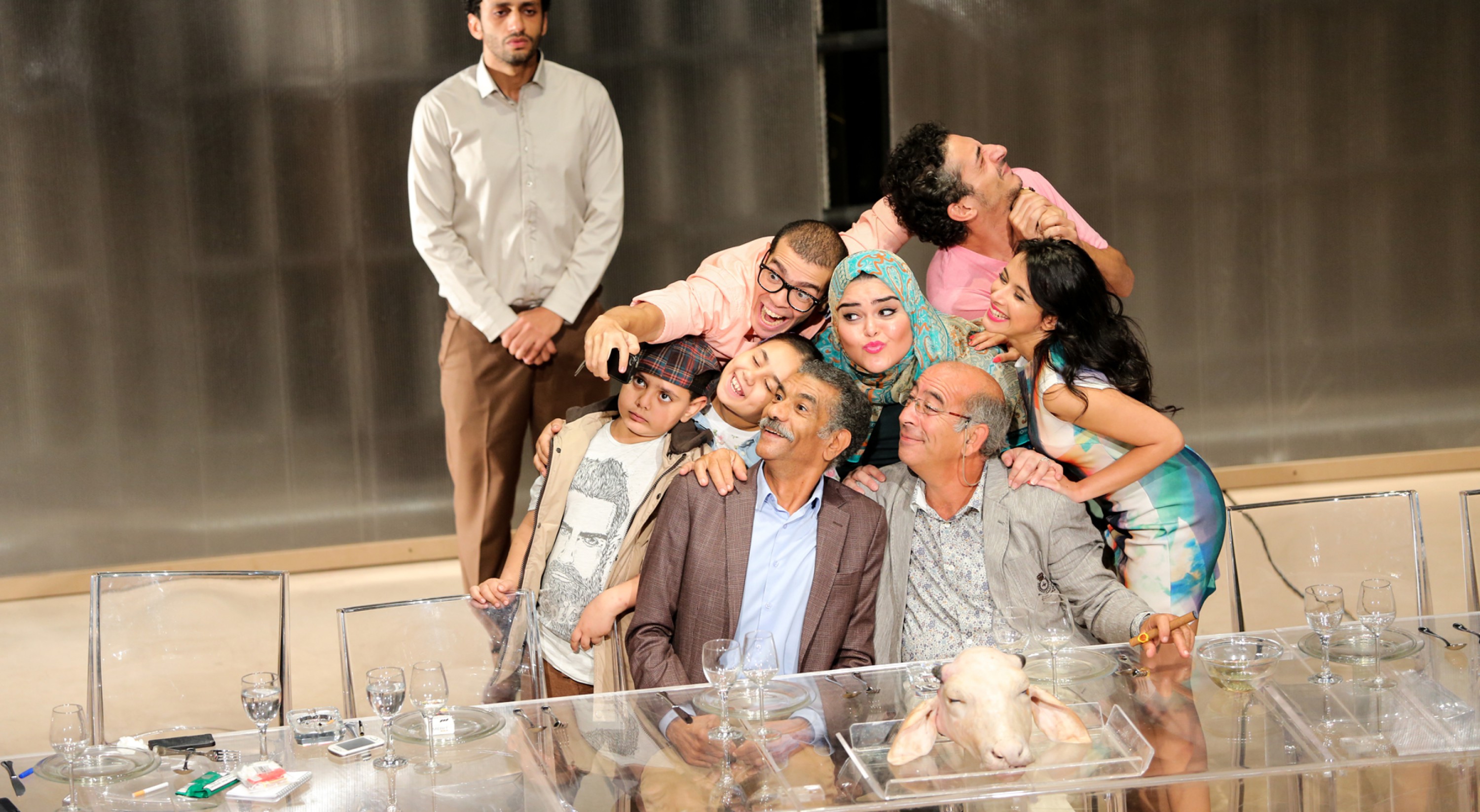Ahmed El Attar
The Last Supper
novembernov 9 – 15
novembernov 17
Written and directed by, Ahmed El Attar
With Mahmoud El Haddad, Mohamed Hatem, Marwa Tharwat, Boutros Boutros-Ghali, Abdel Rahman Nasser, Ramsi Lehner, Nanda Mohammad, Mona Soliman, Ahmed Farag, Mona Farag, Sayed Ragab
Music, Hassan Khan
Stage and costume design, Hussein Baydoun
Lighting design, Charlie Åström
Sound design, Hussein Sami
French translation, Menha El Batraoui and Charlotte Clary
Tour manager, Henri Jules Julien
An Orient Productions and The Temple Independent Theatre Company production // In coproduction with Tamasi Collective // In partnership with T2G − Théâtre de Gennevilliers ; L’apostrophe Scène nationale de Cergy Pontoise et du Val d’Oise ; Festival d’Automne à Paris // With support from Studio Emad Eddin Foundation and Swedish International Development Cooperation Agency (SIDA) // With support from ONDA // First performed on November 2014 in Cairo
An upper middle-class Cairo family gathers around the table for a family dinner. There is the father, smoking his cigar, the conspicuously absent mother, their son and his wife, their children, their daughter and her husband, the general, a close family friend, and three servants. As in a Chekhov play, they indulge in small talk, rapidly get on each other’s nerves, argue and then calm down, before growing bored and killing time. Through their conversations, the author and director, Ahmed El Attar, sets out to describe the profoundly vacuous existence of his country’s economic elite. This ruling class, previously highly cultured but now inward-looking and incapable of thinking beyond its own needs, is depicted as being futile, authoritarian, greedy and contemptuous, domineering and resistant to change of any kind. The Last Supper draws up a picture of a society unable to put an end to the archetypal figure of the father, represented by the Egyptian presidents - from Moubarak to al-Sissi. In contrast to his performance of The Importance of Being an Arab, in which Ahmed El Attar spoke of the revolution and current events in Egypt by drawing upon his personal documents - in this instance, his private telephone conversations which he recorded -, The Last Supper marks a return to theatre writing, nourished by the organic cohesion of his thirteen actors. Via this intimate portrayal of family life, Ahmed El Attar delves deep into the very fundaments of Egyptian society. What we find is a class-led society, characterized by its hegemony of despotic father-figures and the silent domination of a nation plunged into misery.
In the same place

